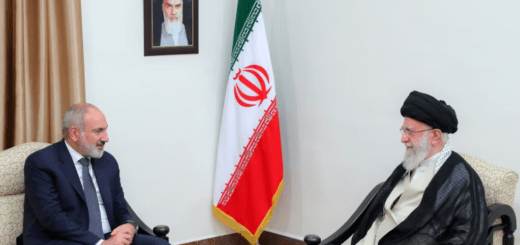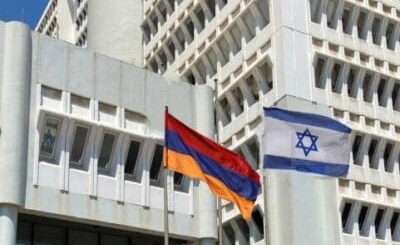Defence diplomacy: How Turkey is arming itself, and the world

8 min read
Turkish President Recep Tayyip Erdogan’s trip to Saudi Arabia in 2022 was no ordinary diplomatic event, coming four years after the murder of Saudi dissident Jamal Khashoggi had sent the bilateral relationship to a historic nadir.
His appearance in the Saudi capital was aimed at breaking the ice in the personal relationship with Crown Prince Mohammed bin Salman (MbS) and resetting Turkey’s broader ties with the kingdom.
Three years on and several state visits later, bilateral defence ties have expanded in significant ways.
Riyadh placed a major order for Turkish-made drones in 2023 and is now reportedly considering a new weapons deal worth billions of dollars. It is also inviting Turkish firms to help build its own defence industry and exploring agreements to co-produce the country’s indigenous military tech.
Such a partnership was scarcely thinkable just a few years ago amid the fallout from the Khashoggi affair.
It is also emblematic of the gains made by a Turkish industry whose presence in the international arms trade is increasingly hard to ignore.
Made in Turkey
For the past five decades, successive Turkish governments have pushed to expand the country’s defence industry and curb its reliance on overseas arms companies and international supply chains.
It has sought to build an ecosystem of local companies capable of manufacturing components and establishing partnerships with the world’s leading contractors to obtain new technologies and technical know-how.
As of 2025, local companies provide more than 80% of the products required by the industry.
The push for autonomy was motivated by the US arms embargo of the 1970s, which for three years blocked the country from purchasing arms from what was then its biggest defence partner.
“Tensions with the United States and other Western countries, as well as restrictions imposed on Turkey in general, have prompted the country to focus more on its own arms sector,” Ufuk Necat Tasci, a professor of international relations, tells The New Arab.
The lessons of the 1970s were reinforced only five years ago when the Trump administration slapped sanctions on Turkey’s defence industry and expelled it from the F-35 programme in response to its purchase of Russia’s S-400 air defence system.
Since then, US arms sales to Turkey have fallen more than 80%, Tasci says.
The industry’s development has, in recent years, begun to bear fruit in the shape of higher value-added, technologically sophisticated products.
Turkish armoured vehicles and aerial drones have become huge overseas moneymakers. The Turkish navy is expanding its use of locally made sea drones and is currently building the country’s first aircraft carrier.
Aselsan – the country’s largest defence company – produces sensors, missile guidance technologies, and electronic warfare systems. In August, the Turkish military began using the company’s new ‘Steel Dome’ air defence system, which it says can protect against short-, medium-, and long-range missiles.
Among the industry’s most ambitious undertakings is the ongoing development of an indigenous fifth-generation fighter jet, the KAAN.
Led by Turkish Aerospace Industries, the project would put Turkey among an exclusive group of countries capable of producing the advanced aircraft, should it get off the ground later this decade.

An emerging global supplier
Turkey’s investment in its domestic industry has seen it rise to become one of the world’s fastest-emerging arms exporters and a major supplier to countries across Africa and Asia.
Fuelled by purchases of armoured vehicles and drones, annual revenues from defence exports have more than trebled since the turn of the decade, reaching $7.1 billion in 2024.
This has seen the country increase its global market share from 0.8% in the latter half of the 2010s to 1.7% between 2020 and 2024, according to the Stockholm International Peace Research Institute (SIPRI).
Demand for Turkish weaponry is particularly strong among high- and middle-income developing countries. Allies in Azerbaijan and Turkmenistan, the Gulf states, Ukraine, and Pakistan have been among its biggest foreign buyers over the past decade.
Turkish companies have not achieved such growth rates by pricing alone, but offer other advantages over their competitors.
For one, companies provide Western-standard products – by virtue of Turkey’s NATO membership – on more favourable terms than American and European contractors.
“Because Turkish companies operate in a volatile, unpredictable and problematic domestic economic picture, they operate at higher margins of risk. This means that they offer shorter delivery times and more flexible contract terms,” Sitki Egeli, professor of international relations at the Izmir University of Economics, tells The New Arab.
Turkish weaponry also comes with fewer political strings attached and is less subject to the shifting agendas of some Western governments.
“If you are buying weapons, you want some predictability. You want to make sure they are not held hostage to other issues in the relationship,” Egeli says.
They also have an advantage over many European products in that they are actively used by the Turkish military and tested on the battlefield.
Though developing countries continue to be their biggest buyers, Turkish companies have, within the past year, begun to carve out spaces in advanced economies that just a few years ago would have been unthinkable.
Turkish Aerospace Industries is supplying Spain with trainer aircraft. Turkish shipyards are building logistics ships for the Portuguese Navy. Leading drone manufacturer Baykar will produce unmanned aircraft in Italy alongside Italian defence giant Leonardo and sell them to European countries.
In a watershed moment in December, the company made its first acquisition in Europe, purchasing Italian aerospace firm Piaggio.
Sales are projected to continue rising in the coming years as the country widens its footprint in Africa and Asia and expands into Europe. The government expects revenues to climb to $8 billion this year and is targeting $11 billion by 2028.

A global drone power
Drones have become the poster child for Turkey’s rise as a significant force in the global arms industry.
Turkish companies such as Baykar and Turkish Aerospace Industries have exported UAVs to almost 40 countries around the world, generating headlines for their involvement in Ukraine, Syria, and Nagorno-Karabagh, and putting the country at the forefront of a technology that is rewriting the rules of warfare.
The growth has been rapid. Since first entering the international market less than seven years ago, Turkish contractors have been responsible for more than two-thirds of global transfers of armed drones, according to data collected by the Centre for New American Security.
Between January 2020 and September 2023, Turkey was second only to the US in the number of drones it exported, eclipsing Israel.
Though relative newcomers in the global marketplace, the recent successes of the Bayraktar TB2 and TAI’s Akinci are the results of a multi-decade strategy to develop unmanned vehicles that was driven by Turkey’s conflict with the PKK.
“This provided Turkey with very extensive experience and first-hand knowledge on the use, the doctrines, the strong points, the weak points of UAVs,” Egeli says.
Turkey owes its dominance in armed UAVs in large part to American and European companies, which have been almost entirely absent in the international market. Very few countries have been able to obtain American-made combat drones due to US legislation that restricts their export. Meanwhile, European companies have struggled to get indigenous drone programmes off the ground.
“Europeans were not there. Americans would not sell. The Chinese would sell, but customers were not happy. Turkey capitalised on that,” Egeli says.
Added to that is Turkey’s early adoption of smaller munitions for lighter aircraft, which provided a much-needed alternative to the larger, more expensive missiles produced by US and European contractors.
Exploiting the gap in the market, Turkey stepped in and developed munitions more suitable for militaries outside of the developed world, according to Egeli.
Guns and diplomacy
Turkey’s evolving technologies have been a primary mechanism to strengthen its overseas relationships and pursue rapprochement with former adversaries.
Nowhere is this more evident than in the Gulf, where countries have begun to move past their previously troubled relations with Ankara and have become willing partners with Turkish defence companies.
The UAE – itself one of the world’s fastest-emerging arms suppliers – was in the first half of the decade Turkey’s largest export market, accounting for almost a fifth of all exports, according to data compiled by SIPRI.
Since Erdogan cleared the air with his trip to Riyadh in 2022, Saudi Arabia has begun to build closer ties with Turkish firms.
In 2023, the kingdom became the latest country to add Bayraktar drones to its air force, and is now reportedly chasing a deal worth $6 billion to acquire a suite of Turkish-made armaments, including tanks, naval ships and missiles.
In July, the Saudi sovereign wealth fund recruited leading Turkish companies to help build up its own domestic defence industry in a step that would help it reduce its dependence on US-made systems.
It has reportedly expressed willingness to buy as many as 100 KAAN fighter jets and is eager to help co-produce the aircraft.
Tasci says that technological advances have made Turkish companies a “critical determinant” of the country’s ability to achieve its foreign policy goals.
“Turkey’s claim to be a major player in the region is supported by deeper bilateral and regional contacts created through the defence industry,” he says.
“For Turkey’s neighbours, turning their backs on the country is no longer as simple as it once was.”






